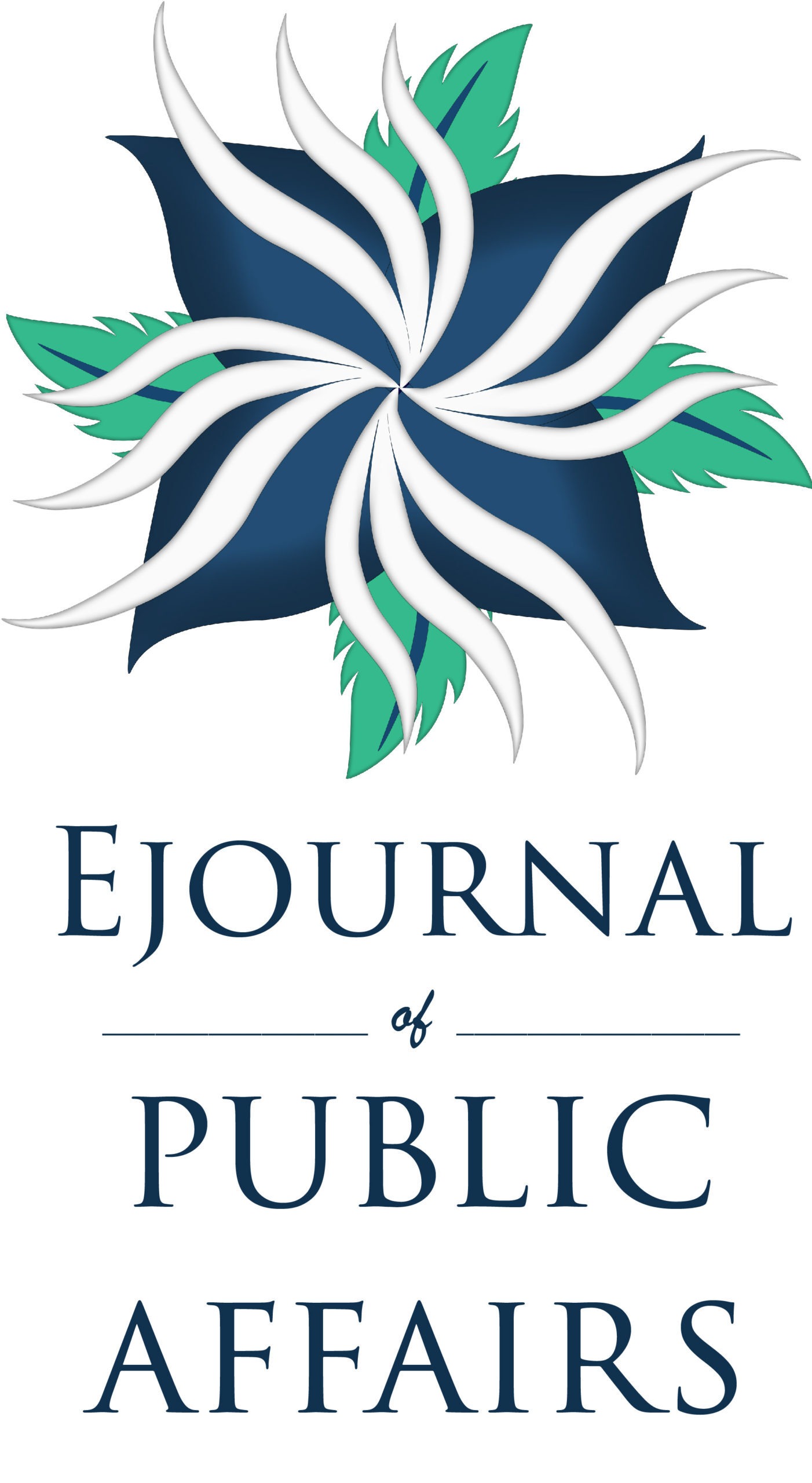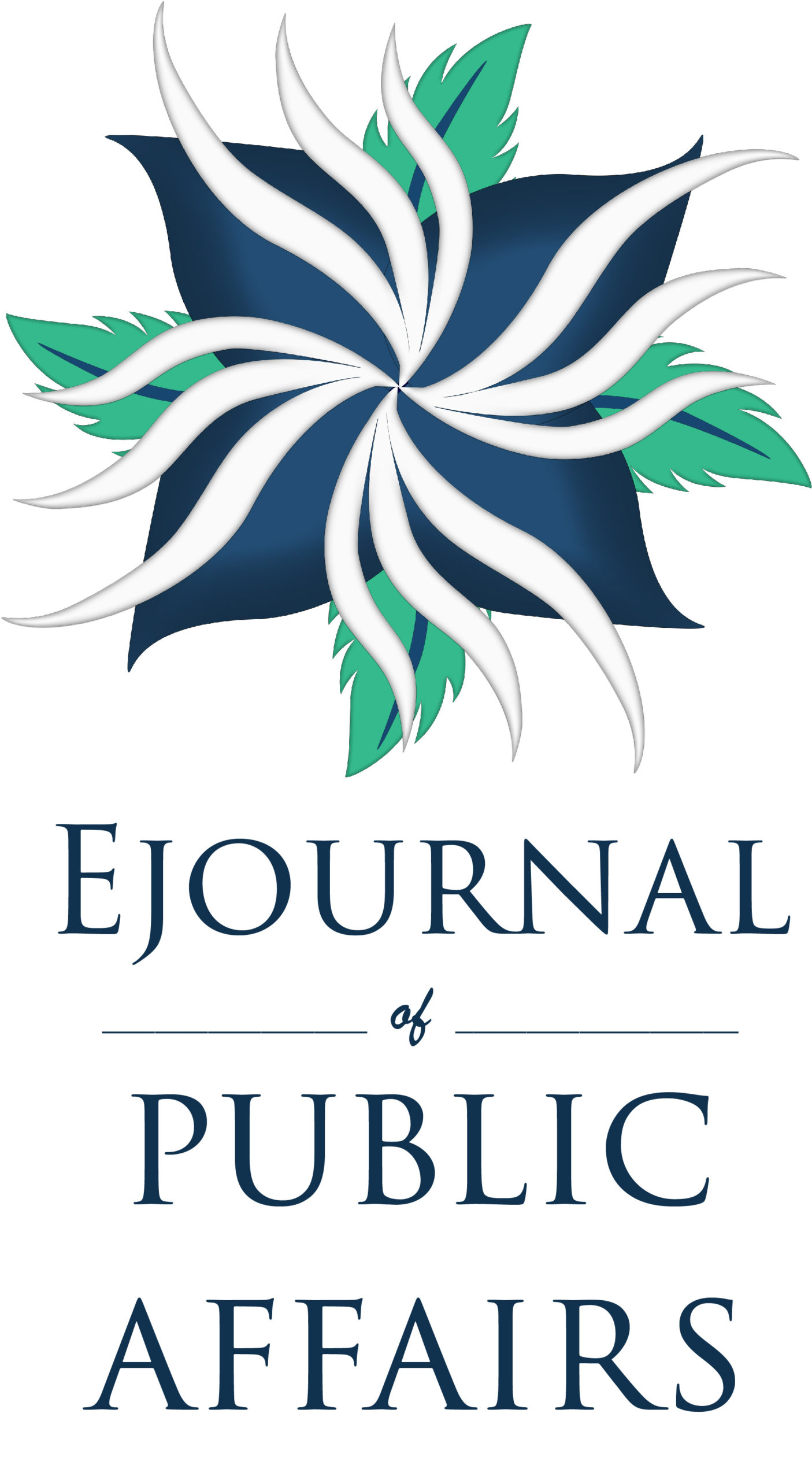This editorial is my final one for the eJournal of Public Affairs, having announced my retirement as of March 1, 2022. I feel so privileged to have been part of this effort formulating and overseeing such a special scholarly resource. There is so much to say, but I will focus on three main points.
From the beginning, it felt strategic to create an opportunity for faculty to gain legitimate academic credit for their work related to civic engagement. By providing a scholarly venue that included a double-blind peer-review process, as requested by our provost, the eJournal allowed authors’ work to be recognized as research rather than assigned or credited as service. We aimed to be part of a significant change for the growing number of institutions active in programs involving civic engagement. Thus, the eJournal has invited scholarship reflecting theory and practice, encouraging the publication of relevant and insightful quantitative and qualitative data and inquiry.
Second, we evolved our process in such a way that many of the articles were noticeably improved after going through rigorous review and copyediting. We received emails from faculty acknowledging their appreciation for the extra efforts the eJournal implemented. No doubt this was the result of the exceptional work by our managing and guest editors as well as our copyeditor.
The eJournal adopted approaches that account for this success, and our methods relate directly to why we maintained a lower rejection rate than many journals. Many times, our founding managing editor, Marc Cooper, offered to work with authors who were willing to commit to improving an article subject to rejection and revise it into a publishable piece. This commitment was continued by our second managing editor, Darrell Hamlin, and this way of approaching the work just felt right. In addition, higher-quality submissions resulted from recruiting guest editors to develop special-topic issues. We learned and benefited from these guest editors, and our yearly issues would average one open-submission issue and two special-topic issues per year. Special-topic guest editors solicited submissions from their colleagues, providing consistently high-quality, thematically coherent submissions for the review process. These two practices supported our capacity to produce more materials, with fewer reasons to reject outright the work we reviewed. The eJournal has remained committed to representing “engagement” through our work with authors willing to take on deep revision efforts.
Lastly, collaborations—my favorite part of this venture! For me, this began after a conversation with Dr. Rachell Darabi, to whom I had been assigned to report. Rachell focused her interest on restarting a publication around Missouri State University’s public affairs mission, and she shared her vision of collaboration with the American Democracy Project. Some 12 years later, I am thankful that this smart and dedicated professional turned out to be one of the best administrators with whom I had the good fortune to work. My dear friend Marc Cooper, who took the reins as managing editor, had a formative influence in shaping our methodology and high academic standards. Our current managing editor, Darrell Hamlin, is another good friend who established himself with several issues as a guest editor. Darrell continued and enhanced what Marc had started. I am so grateful to our associate editor, Charlie Whitaker, whose talent supported the website, publishing process, design, and strategies. Copyeditor Brad Arndt’s work has been consistently first-rate, complimented by many authors. Our editorial board members instilled great insight and broader thinking; they truly epitomized engagement and academic excellence. And the work of students, administrative assistants, and colleagues brought immeasurable benefits to the development and production of our ideas and publications.
I will cherish my work at MSU, particularly with the eJournal of Public Affairs. In the list that follows this editorial, readers can appreciate the number of topics the journal addressed that were related to the University’s mission statement. On a personal note, this editorial is bittersweet since it is my last—but I encourage MSU to continue this important venture. After all, our work is not done: Serious issues face us and our nation’s future. Recent events have challenged democratic practice, confronting us with the need for more focused, constructive, and productive dialogue. Continued efforts are necessary to address important issues, including affordable healthcare, voter restrictions, campaign finance, gerrymandering, accountability for public officials, reform of the justice system, tax fairness, student debt, and the balance between environmental protection and fair business practices. These are only a few critical matters known to us now; undoubtedly, the future holds difficulties we do not yet perceive. As citizens, we must be a beacon for democracy, and this requires attention and work to stay the course. With so much left to do, I want to feel hopeful for our future and therefore want to recall the following words.
Oren Lyons, Chief of the Onondaga Nation, wrote, “We are looking ahead, as it is one of the first mandates given us as chiefs, to make sure and to make every decision that we make relate to the welfare and well-being of the seventh generation to come.”
Law 28 of the Constitution of the Iroquois Nation, of the Six Nations of the historic Haudenosaunee Confederacy, reads,
“We now do crown you with the sacred emblem of the deer’s antlers, the emblem of your Lordship. You shall now become a mentor of the people of the Five Nations. The thickness of your skin shall be seven spans—which is to say that you shall be proof against anger, offensive actions, and criticism…. Look and listen for the welfare of the whole people and have always in view not only the present but also the coming generations, even those whose faces are yet beneath the surface of the ground—the unborn of the future Nation.”
The Great Law of the Haudenosaunee Confederacy is also credited with influencing the composition of the U.S. Constitution, due to Benjamin Franklin’s great respect for the Haudenosaunee system of government—which is notable considering that the United States formed its Constitution not on the principles of European governments, but rather on those of a people considered “savages.”
In closing, I cannot express enough gratitude to all those who have been a part of this venture, for their ideas, labor, and dedication to our mission, as the eJournal has remained dedicated to research, education, and civic mission of the University. It has been such a pleasure working on this project. My time with the journal will always be with me, and for that I am deeply grateful.
Andrew P. Lokie, Jr. [Retired]
Associate Professor, Executive Editor of eJournal of Public Affairs
and Director of Special Projects
Missouri State University
Volume-Issue Numbers and Titles
2-3: Social Entrepreneurship
3-2: Beyond Sustainability
3-3 & 4-1: Global Engagement: Educating Globally Competent Citizens in Colleges and Universities
4-2: Higher Education’s Role in Preventing and Responding to Gender-Based Violence
5-1: Campus and Community Civic Health
5-2: Educating for Democracy
6-1: Civic Leadership for Social Justice
7-2: Cultural Competency Pedagogy in Graduate Public Affairs Education
7-3: First-Generation College Students
8-3: Institutionalizing Community Engagement at the College Level
9-1: All Voices Count: Advancing Democratic Engagement
10-2: Building Community Ownership to Change Everything
10-3: Evolving Perspectives on Civic Engagement
11-1: Civic Engagement in an Era of Divisive Politics and Civil Unrest
Author
 Andrew P. Lokie, Jr. As of March 1, 2022, his updated bio is Retired Associate Professor! His career spans across five institutions pursuing a purpose to better the educational opportunities with students and faculty, with a particular intention to develop lifelong learners and well-rounded contributing individuals. A favorite MSU slogan, and perhaps a more relevant intention for students is “Follow Your Passion and Find Your Place”. Complimenting his work in education was to coach wrestling, including youth, high school, and college, “Focused-Sustained-Intensity”. Now retired, he will devote more time to pursue his passion to interact with nature, including gardening- “Tickle the mother in the spring and watch her laugh at harvest”, and other activities involving being in the woods or around the ocean shores. With this in mind, he intends to continue more encouragement for greater respect, awareness and care for our environment. Also, to emphasize the value of quality education and experience. Finally, commit more of his new available time for the practice of yoga and tai chi, and to spread more compassion, better thinking, and good spirits.
Andrew P. Lokie, Jr. As of March 1, 2022, his updated bio is Retired Associate Professor! His career spans across five institutions pursuing a purpose to better the educational opportunities with students and faculty, with a particular intention to develop lifelong learners and well-rounded contributing individuals. A favorite MSU slogan, and perhaps a more relevant intention for students is “Follow Your Passion and Find Your Place”. Complimenting his work in education was to coach wrestling, including youth, high school, and college, “Focused-Sustained-Intensity”. Now retired, he will devote more time to pursue his passion to interact with nature, including gardening- “Tickle the mother in the spring and watch her laugh at harvest”, and other activities involving being in the woods or around the ocean shores. With this in mind, he intends to continue more encouragement for greater respect, awareness and care for our environment. Also, to emphasize the value of quality education and experience. Finally, commit more of his new available time for the practice of yoga and tai chi, and to spread more compassion, better thinking, and good spirits.
Career Experience: Media Specialist, (1986–1988) Education Division, The Cleveland Clinic Foundation, Cleveland, Ohio; Media/ Multimedia Producer for IMTS, (1988–1996) Alden Library, Ohio University, Athens, Ohio; Director of Instructional Media Services,(1996–1999) Bucknell University, Lewisburg, PA; Director of Learning Resources Center, Library & Media Services, (1999–2001) Broome Community College, Broome, NY; Director of Educational Technology Center, LIS Faculty, (2001–2010) Missouri State University, Springfield, MO; Editor for the eJournal of Public Affairs, LIS Faculty, (2010–2022) Missouri State University, Springfield, MO

